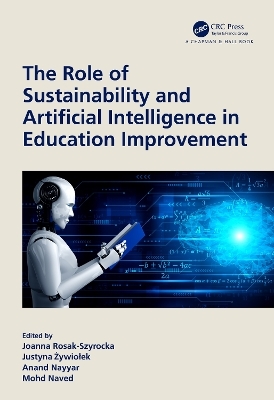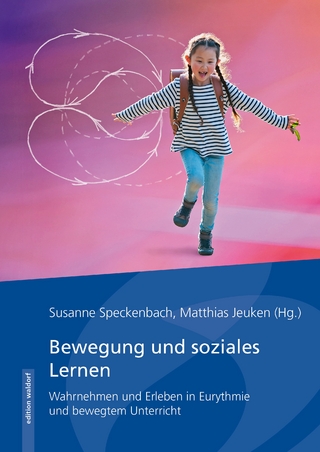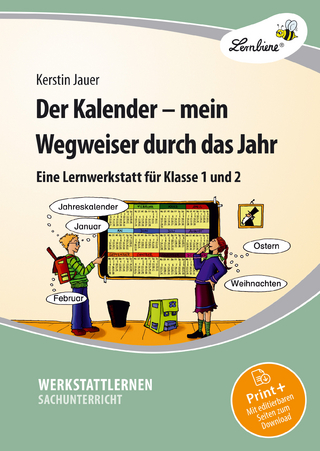
The Role of Sustainability and Artificial Intelligence in Education Improvement
Chapman & Hall/CRC (Verlag)
978-1-032-54464-9 (ISBN)
This book is devoted to the issues faced by universities in the field of distance learning during and after COVID, as well as in digitalization times. The book devotes a lot of space to the issues of Web 3.0 in university e-learning, Industry 4.0, artificial intelligence and digital equity.
The aim and scope of this book is to draw a holistic picture of education before and after COVID, the psychological effects of COVID in education, and using modern technologies application in education, taking into consideration aspects of sustainability development, Industry 4.0 and Society 5.0. The authors also raise the issue of artificial intelligence investigation in learner-instructor interaction.
Features:
To elaborate the functions of online education and numerous pedagogical strategies based on electronic learning to aid teachers and students with the tools required to succeed in the 21st century via engaging virtual experiences
To analyze tools provided by Ed-Tech firms and the effect of digital tools on maintaining the educational process in times of crisis and after pandemic
To create a roadmap for higher education institutions and provide tips regarding how to improve the effectiveness of the hybrid learning system
To understand e-learning characteristic in the era of Industry 4.0 and Society 5.0 and characteristics of the different web generations
To use AI applications to improve connections and relationships between students and teachers and in education in the future
The book is both scientific and educational. It can be used at the university level and by anyone interested in the topics it covers.
Dr. Joanna Rosak-Szyrocka Assistant Professor, Erasmus+ coordinator at the Faculty of Management, Czestochowa University of Technology, Poland. She specialized in the fields of digitalization, industry 5.0, quality 4.0, education, IoT, AI, and quality management. She completed a research internship at the University of Żilina, Slovakia, and at Silesia University of Technology, Poland. Participant in multiple Erasmus+ teacher mobility programs: Italy, UK, Slovenia, Hungary, Czech Republic, Slovakia, and France. She held a series of lectures on Quality Management at universities in countries such as Great Britain, the Czech Republic, Slovakia, Slovenia, France, Hungary, and Italy. She cooperates with many universities both in the country (University of Szczecin, Rzeszów University of Technology, Silesian University of Technology), and abroad (including the University of Tabuk, Saudi Arabia; Széchenyi István University, Hungary; University Faisalabad, Pakistan; University of Humanities, China, University of Technology Sydney, Australia; Bucharest University of Economic Studies, Romania; and Federal University Dutse, Nigeria). Editorial Board: Plos One Journal, PeerJ Journal, and IJQR Journal (ISSN 1800-6450). Reviewer Board: IJERPH MdPI (ISSN 1660-4601) IF: 4.614. Associate Editor for Cogent Business and Management, Taylor & Francis (ISSN: 2331-1975). Guest Editor of: Resources MdPI, IJERPH MdPI, Energies MdPI, Sustainability MdPI, Springer Discover Sustainability Journal, Frontiers Journal, and Elsevier Measurement Journal. Reviewer for a number of prestigious journals like IEEE, Elsevier, MdPI, Frontiers, Sage, and Emerald. Justyna Żywiołek is an Assistant Professor, Department of Production Engineering and Safety, Faculty of Management, Częstochowa University of Technology. Anand Nayyar is an Assistant Professor, School of Computer Science, Duy Tan University, Da Nang, Viet Nam. He is currently working in wireless sensor networks, MANETS, swarm intelligence, cloud computing, internet of things, blockchain, machine learning, deep learning, cyber security, network simulation, and wireless communications. He has published more than 350 research papers in various national and international conferences and journals. Dr. Mohd Naved is a distinguished Associate Professor with an impressive career spanning over 16 years in the fields of Business Analytics, Data Science, and Artificial Intelligence. As an educator, Dr. Naved has consistently demonstrated a commitment to the highest standards of teaching and mentoring, ensuring that his students receive an education that is both cutting-edge and grounded in real-world experience. His dedication to helping students achieve their full potential extends beyond the classroom, as he has been an active participant in the university's Mentor-Mentee Program, providing guidance and support to over 150 undergraduate and postgraduate students. In addition to his teaching prowess, Dr. Naved has excelled in the areas of education management, research, and curriculum development.
1. Hybrid Learning in HEI – Pathway, Implementation and Challenges. 2. The Psychological Effects of COVID-19 on College Students Due to Digital Divide via Online Education. 3. Investigation of Student’s Intention and Related Determinants for E-Learning Continuance in Education after COVID-19. 4. Education 4.0 And Web 3.0 Technologies Application for Enhancement of Distance Learning Management Systems in Post COVID-19 Era. 5. Undergraduates Perception Towards E-Learning During the Pandemic: Evidence from State Universities in Sri Lanka. 6. Online Teaching Sustainability and Strategies During the COVID-19 Epidemic. 7. Inclusiveness and Sustainability of Teaching and Learning Technologies Amidst the COVID-19 Pandemic in Higher Education: An Indian Perspective. 8. Framework to Integrate Education 4.0 to Enhance E-Learning Model for Industry 4.0 And Society 5.0. 9. Towards Digital Equity: Reimagining Digital Learning Through the Lens of Bloom's Taxonomy. 10. The Empirical Investigation of Artificial intelligence Towards Enhancing the Learner–Instructor Interaction Towards Online Learning using Multiple Regression Analysis. 11. Effect of Digital Competence and Pedagogies on Gender Orientation of Pedagogue: A Quantitative Study with Regression Modeling of Higher Education Institutions. 12. AI in Sustainable Education: Benefits, Applications, Framework and Potential Barriers.
| Erscheinungsdatum | 23.11.2023 |
|---|---|
| Zusatzinfo | 34 Tables, black and white; 43 Line drawings, black and white; 43 Illustrations, black and white |
| Sprache | englisch |
| Maße | 178 x 254 mm |
| Gewicht | 648 g |
| Themenwelt | Schulbuch / Wörterbuch ► Unterrichtsvorbereitung ► Unterrichts-Handreichungen |
| Mathematik / Informatik ► Informatik ► Software Entwicklung | |
| Sozialwissenschaften ► Pädagogik ► Erwachsenenbildung | |
| Technik ► Elektrotechnik / Energietechnik | |
| Technik ► Umwelttechnik / Biotechnologie | |
| ISBN-10 | 1-032-54464-3 / 1032544643 |
| ISBN-13 | 978-1-032-54464-9 / 9781032544649 |
| Zustand | Neuware |
| Informationen gemäß Produktsicherheitsverordnung (GPSR) | |
| Haben Sie eine Frage zum Produkt? |
aus dem Bereich


